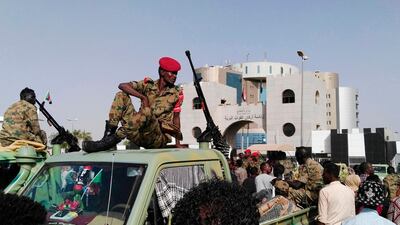It has never been easy to hold Sudan together. The secession of South Sudan a decade ago proved as much, but the difficulty of maintaining national unity has been known to Khartoum’s generals, Sudan’s most powerful figures, since long before that. The country is plagued by political divisions, and preventing them from degenerating into chaos has consistently been cited by the army as the reason for past military coups.
And yet, in 2019, unity appeared to make a show of force on Sudan’s streets, when a broad coalition of civil society members, opposition politicians, students and professional associations banded together to form the Forces of Freedom and Change (FFC). The popularity of the movement prompted the country’s generals to remove Omar Al Bashir, Sudan’s then dictator, from office, and a power-sharing deal was agreed between the FFC and the army until elections could be held at the end of 2022.
Now, there are fears that unity will, once again, prove to be short-lived. Before dawn on Monday, Sudan’s military forces arrested the Prime Minister of the FFC-led civilian wing of the government, Abdallah Hamdok, along with several other politicians. By Monday afternoon, Gen Abdel Fattah Al Burhan declared a state of emergency, suspended the Constitutional Declaration that marked out the timeline for democratic transition and dissolved both the civilian government and the joint military-civilian Sovereign Council that oversaw it. Gen Al Burhan himself was chairman of the Sovereign Council prior to its dissolution, and has repeatedly said that he supports the country’s path to democracy.
By upending Sudan’s fragile transition plans, the military risks unravelling the considerable progress made since the Al Bashir era in civil rights, the rule of law and international relations. The country’s generals were reminded how much was at stake during a visit to Khartoum this week by Jeffrey Feltman, the US special envoy for the Horn of Africa, in which he told them that much-needed economic support from Washington would be “in question” if Sudan’s transition to civilian rule were put at risk.
Nonetheless, many in Sudan have called for drastic measures out of sheer desperation. In recent months, the FFC-led government fractured, undermining the authority of Mr Hamdok as well as its credibility in a nation already in the throes of economic crisis. There was diminishing confidence in Mr Hamdok’s administration’s ability to shepherd the country towards prosperity, let alone the level of stability needed for a functioning democracy.
While frustration is widespread, the appetite for an inclusive government remains strong. The streets of Khartoum saw thousands gather after the army’s takeover to decry any potential exclusion of civilians from what they hope will still be an interim administration. Violent clashes between supporters of both Mr Hamdok and the military could spill over into even more violence.
There is a very small window in which to instil confidence, create order and ensure a peaceful transition to competent governance. If Gen Al Burhan is unable to prove that the promises of the country’s revolution can be kept, the chaos the army intends to prevent may arise anyway.


